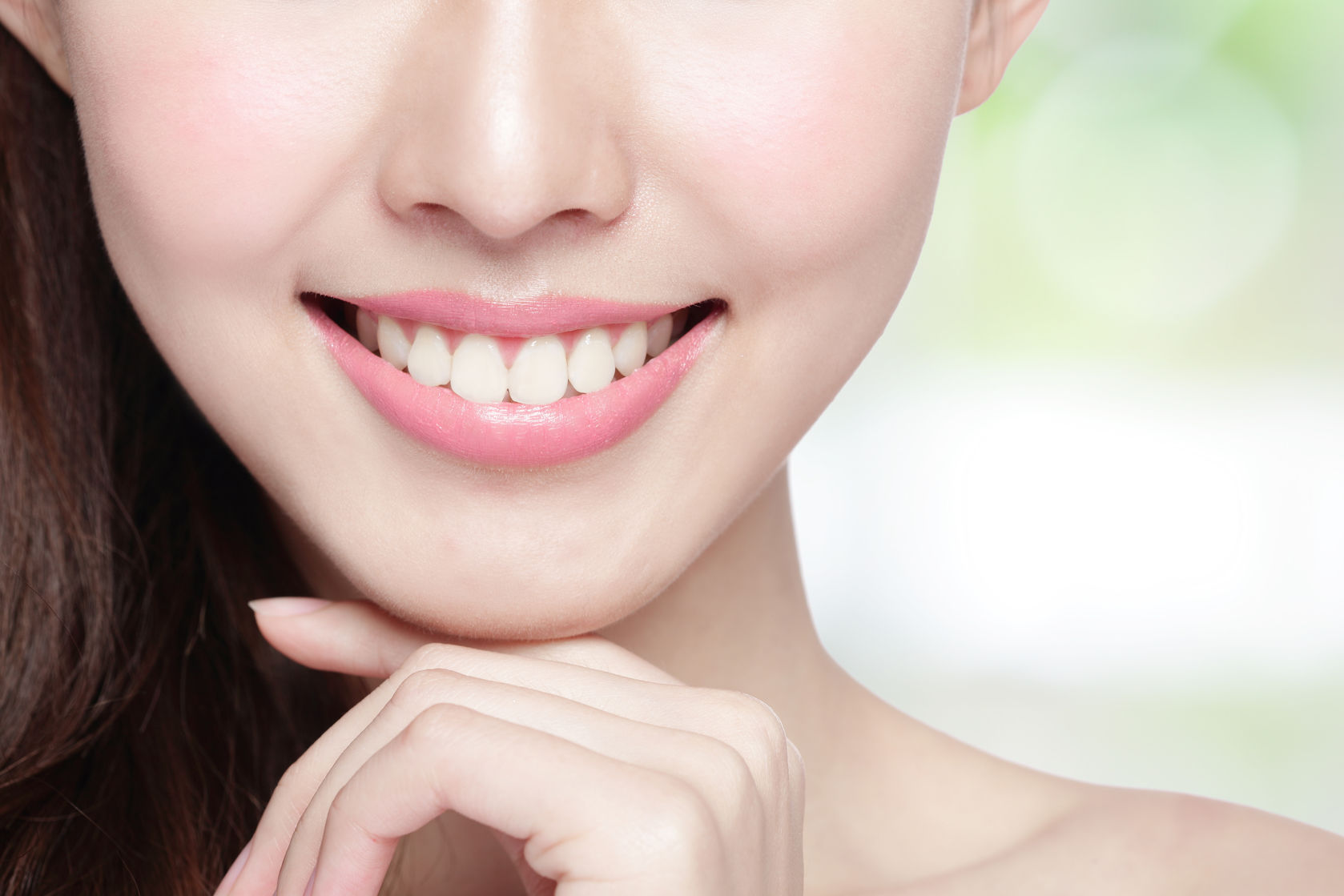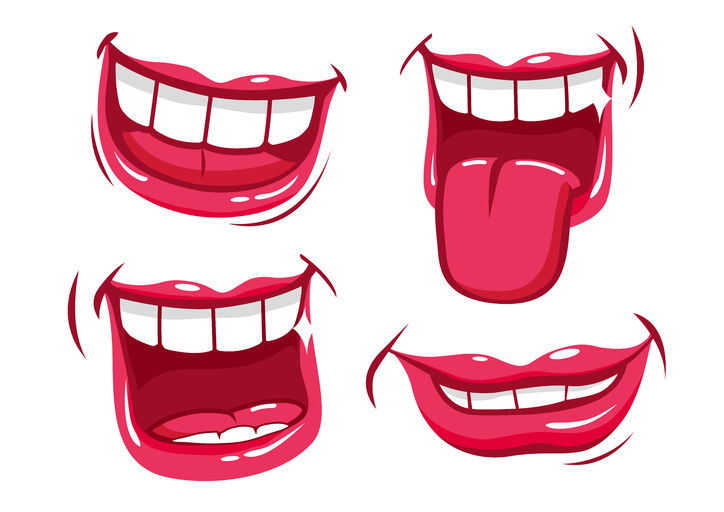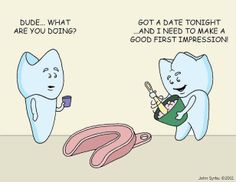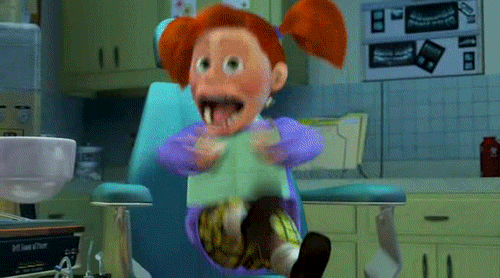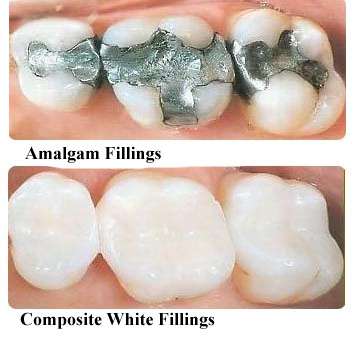We hear about gingivitis all the time, and how bad it is; but do you know what it is exactly? Gingivitis is the inflammation of the gums (gingiva). This gum disease occurs when a person has poor dental hygiene, which results in red swollen gums that bleed easily when teeth are brushed or flossed.
Facts About Your Mouth
March 22, 2016
Are you up on your oral health? There are so many different parts to your mouth, so keeping it clean should be priority! Your teeth, gums and tongue need to be kept up on a daily basis, or else you can risk decay or infection.
Devoted Family Dental has put together some facts about your mouth. Are you ready to read them?!
Whitening Your Teeth Naturally
March 21, 2016
Having white teeth is something that we all dream about. While there’s many different ways to whiten your teeth, some of us would rather do it naturally.
Devoted Family Dental has tips on how you can naturally keep your teeth sparkling:
Teeth Humor At It’s Finest
March 16, 2016
At Devoted Family Dental, we love to share educational information about teeth, but we also like to have fun! We want all of patients to feel comfortable, and there’s no better way to do it than with some teeth humor.
We grabbed the best teeth memes we could find. Take a look – we promise you’ll have a good laugh.
Dating Teeth
The Development Of Teeth
March 11, 2016
When an infant begins teething, we know it’s almost time for their teeth to come in. Infants’ baby teeth start to appear at 6 to 10 months of age. This is the first stage of the development of teeth.
The central incisors tend to come in first, then teeth begin to appear on either side, and the molars come in last. Lower teeth usually appear two months before the uppers. At about two and a half years of age, most children have their 20 primary teeth. As the child grows, the jaw also grows – spaces may then begin to appear between the primary teeth.
Are You Keeping Up With Your Oral Hygiene The Right Way?
March 7, 2016
Dental hygiene is important for a number of reasons. Poor oral hygiene has a long line of consequences such as gum disease, bone loss, heart disease, infection and stroke. However, there are simple things you can do to make sure your oral health is great!
Devoted Family Dental has some great tips:
Proper Brushing
It’s no surprise that brushing is the first step to healthy teeth. While most of us know that we should be brushing our teeth twice daily, a lot of people may not realize that there’s an art to brushing. The bristles on your toothbrush should be angled 45 degrees near the gum line. When brushing, you should be hitting the outer surfaces of your teeth using a back-and-forth, up-and-down motion. Keep in mind that your toothbrush should always be in contact with your teeth and gum line; but brush gently to avoid bleeding gums.
Flossing
Devoted Family Dental really encourages you to floss! Flossing is a major part to keeping your dental hygiene amazing. It may seem like a chore, but trust us; it makes a world of difference. Not only does flossing remove food particles that brushing simply cannot reach, but it also gives your mouth a very clean feeling. We suggest flossing at least once a day.
How To Keep Your Teeth Healthy As You Age
March 2, 2016
As we age, we have to pay a lot more close attention to our overall health. Since our oral health becomes weaker as we get older, we must do our part to keep our teeth as healthy as possible.
Devoted Family Dental has outlined a few tips on how your teeth can continue to stay strong and healthy as you age:
(more…)
Foods That Can Damage Your Children’s Teeth
February 26, 2016
As parents, you try your best to make sure your children remain healthy. Oral hygiene is very important, and weighs heavily on what your child is eating. If your child is eating good healthy food, then he/she will have good teeth. However, if your child is eating bad food, then he/she could be heading in the direction of tooth decay.
Devoted Family Dental Suggests you take the following preventative measures to keep your children’s teeth healthy:
(more…)
Tooth Decay Weighs Heavily on Your Diet
February 18, 2016
The saying: “you are what you eat” is greatly associated with the health of your teeth. In order to truly fight tooth decay it is important to brush and floss your teeth daily and get semi-annual office cleanings and checkups. In addition to all of these things, you also need to watch what you’re eating. Yes, your diet has a lot to do with your teeth!
The foods you eat may be harming your teeth in ways that you wouldn’t even imagine. Check out the following most common foods that could be harmful to your teeth:
(more…)
Mercury Fillings Could Pose Major Health Problems
February 9, 2016
For many, going to the dentist is not an exciting event. Who really wants someone to suck up their saliva while drilling, picking, and filling their teeth?! (more…)

